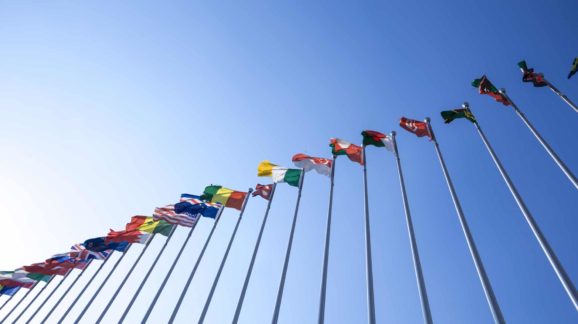Real Goals to Empower the Developing World
Alternatives to the U.N.’s Agenda for Sustainable Development

Full Document Available in PDF
The United Nations is soon due to replace its ambitious Millennium Development Goals with a new set of far more extensive and even more ambitious Sustainable Development Goals. However, the U.N.’s approach suffers from some major flaws. Instead of setting targets, the world should adopt strategies that have proven to deliver a healthier, greener, and more prosperous planet—strategies that also improve the resiliency of communities to whatever nature throws at them.
The U.N.’s approach is flawed because it focuses on simply announcing a slew of targets that are unlikely to prove achievable, especially as there are tradeoffs involved in meeting some targets over others.
Moreover, the U.N.’s emphasis on “sustainability,” as generally defined among development bureaucrats and NGOs, imposes significant burdens on developing countries’ freedom and ability to achieve the rapid increases in human welfare that were the target of the original Millennium goals.
The U.N. also ignores the lesson of the most successful developing economies. For instance, Hong Kong and Singapore followed a proven path to prosperity that is centered on principles that have significantly increased the resiliency of their societies.
We therefore recommend five realistic goals that developing world economies should pursue. They are:
1. Secure Property Rights. Markets, the source of wealth and prosperity, are impossible without security in property rights. Governments should make it their first priority to ensure that property rights are recognized and respected. The Arab Spring began because small businessmen were constantly having their merchandise and tools of their trade expropriated by officials. Land titling is one important means of securing these rights. Common property rights should also be officially recognized and reformed. New technologies such as the Blockchain can help to secure these rights.
2. Secure the Rule of Law. The rule of law reduces arbitrariness in government that can be a huge drain on an economy and human dignity. Research has found that improvements in the rule of law can empower the disadvantaged and help unleash entrepreneurial spirits even among the most previously oppressed peoples. A secure rule of law also reduces corruption. Technology can help deliver this goal, as has been seen in e-governance projects in India. Finally, charter cities can help deliver a “new start” to governance.
3. Ensure Access to Affordable Energy. Affordable energy is key to unleashing human potential, but the U.N.’s emphasis on sustainability perversely increases energy costs. Increased energy costs are an especially severe problem for the poor, who spend a larger share of their income on necessities like energy, shelter, and food. Higher energy costs are also associated with worse health outcomes. Thankfully, technological innovation in fossil fuel extraction has recently reduced energy costs, while reducing emissions in the developed world. Developing countries should allow
and encourage use of these technologies to develop their own energy sectors. Distributed renewable energy has a small but limited role to play, but investments in advanced traditional energy can deliver much greater
benefits to developing nations.
4. Ensure Access to Capital and Credit. Access to capital is important to unleashing “the fortune at the bottom of the pyramid.” Credit allows those who have capital to share its benefits with those who do not, to mutual advantage. As noted, land titling process can provide access to capital, but there are other forms as well. Microsavings, microinsurance, and microloans are all important and are made possible and more accessible by modern communication technology, which lowers transaction costs to unprecedentedly low levels. By some estimates, there is an economy of at least $13 trillion locked up that just needs to be freed up to allow it to benefit its owners.
5. Allow Markets in Education. The U.N. wants developing countries to provide free universal education. This emphasis on price is unnecessary. Recent research has shown that low-cost private education is available in many parts of the developing world, and that its quality outstrips that of supposedly free government schools. Moreover, these schools are helping to achieve gender equity, and are just cost-effective and financially sustainable. They are accountable to parents, and parents generally prefer them even when cost is taken into account. Concerns about affordability are unfounded.
Taken together, these coherent principles will allow for a much stronger, prosperous, and more resilient planet than the bundle of often contradictory targets advanced by the United Nations and other “sustainability” advocates. An agenda that empowers people rather than bureaucrats, building a resilient and in that sense truly healthy society in the process, is the best way to achieve human health and flourishing.